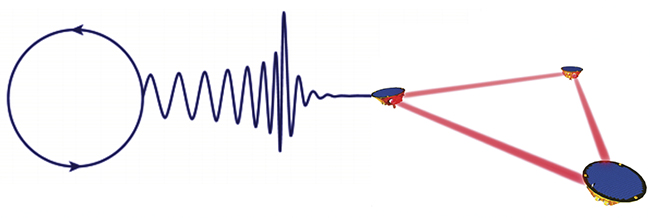URL: https://physikseminar.desy.de/zeuthen/colloquia_in_2019/3_april_2019/@@siteview
Breadcrumb Navigation
Precision Gravity: From the LHC to LISA
Rafael Porto | DESY
Seminar room 3, 14:00
It is indisputable that gravitational wave (GW) observations will play a transformative role in many areas of physics. Yet, the discovery potential in this new window onto the universe relies on our ability to make precise theoretical predictions. In principle, the non-perturbative gravitational regime in the dynamics of binary systems may carry the imprint of physics beyond general relativity or the standard model of particle physics. Nonetheless, the need for numerical modeling, together with the small number of cycles involved, may hinder our ability to pinpoint the type of new physics at play, if restricted only to the merger phase. In contrast, an accurate analytic reconstruction of the signal during the inspiral offers a unique opportunity to unravel many possible scenarios through GW precision data (GWPD). From probes of dynamical spacetime and strongly interacting matter, to the potential to discover exotic compact objects and ultra-light particles in nature. The associated computational challenges, however, are enormous. While current GW templates for compact binary sources may be sufficient for detection and crude parameter estimation, they are still too coarse for precision GW physics. We then find ourselves in a situation similar to particle physics in the pre-LHC era: for key processes within empirical reach theoretical uncertainties may dominate. To move forward, and profit the most from GW observations, more accurate waveforms will be needed. The novel framework to the binary inspiral problem which my collaborators and I have developed — coined the “Effective Field Theory” approach due to similarities with effective theories in particle physics — has been instrumental for the construction of the state-of-the-art GW template bank. In this talk, I will review how these novel techniques provide the building blocks that will enable foundational investigations in physics through GWPD. To conclude I will discuss the challenges ahead in a new era of explorations of the cosmos.




